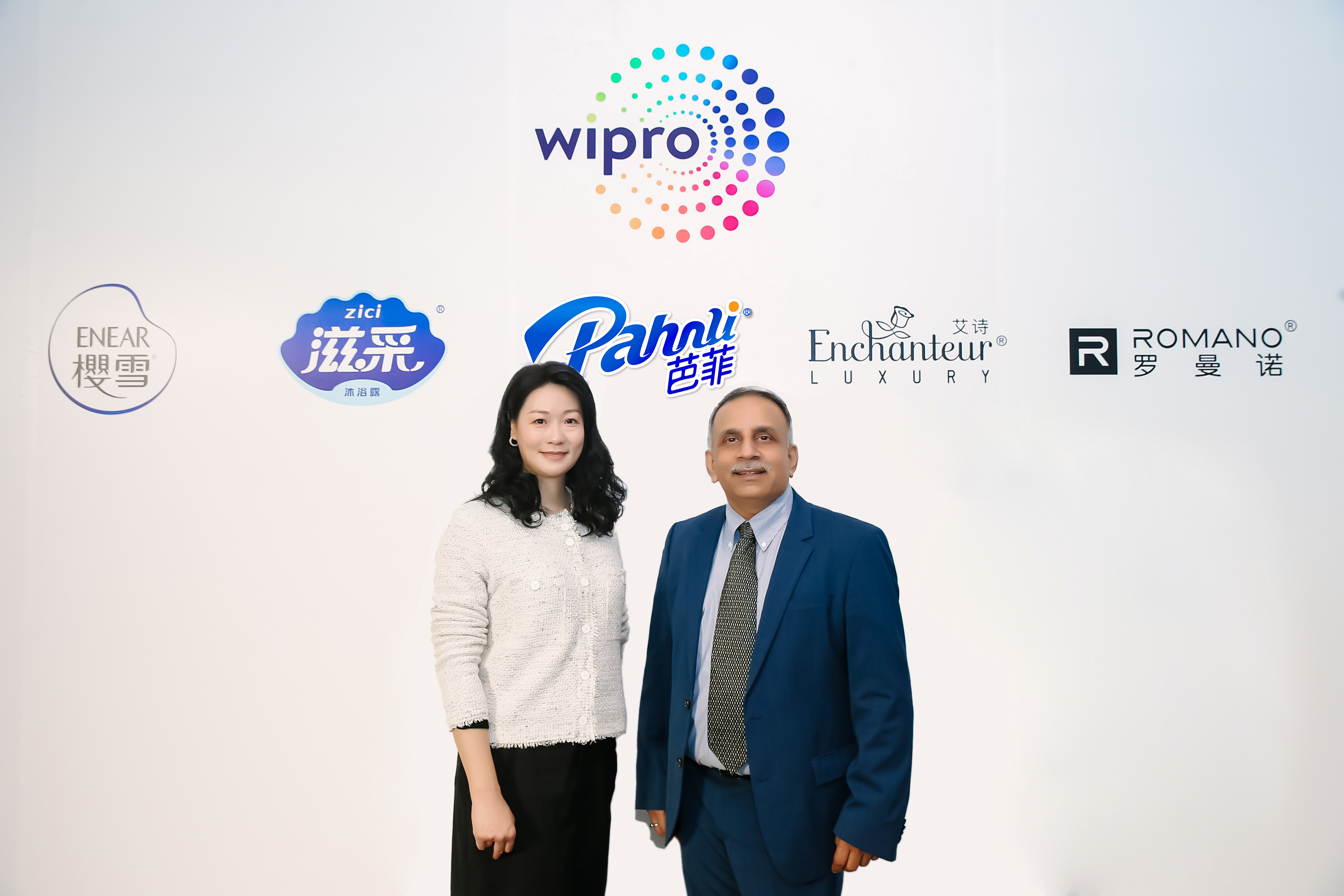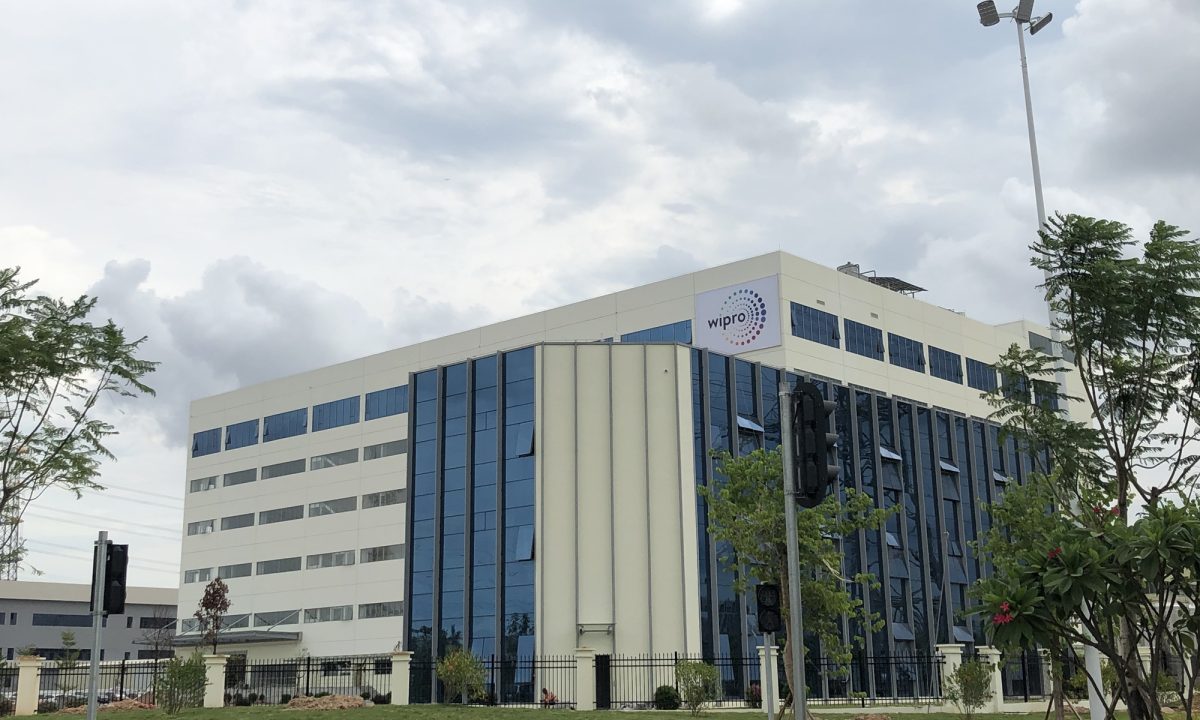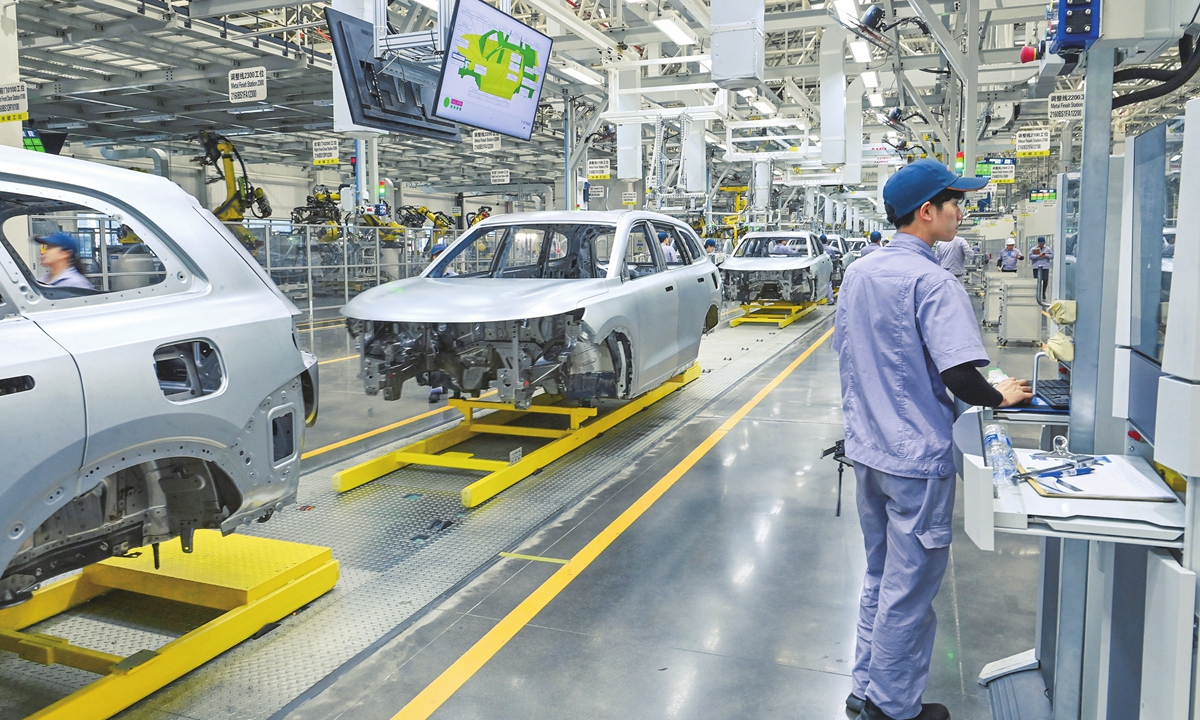<img id="667330" style="border-left-width:0px;border-right-width:0px;width:100%;border-bottom-width:0px;border-top-width:0px;" alt="Photo: Wipro Daily Necessities (Guangdong) Co., LTD” src=”https://www.globaltimes.cn/Portals/0/attachment/2024/2024-03-27/eb50d911-6834-4b6e-99df-fdfab850714a.jpeg” class=”aligncenter”>
Wipro (Guangdong) consumer care Co.LTD. Photo: Courtesy of Wipro Group
Since its establishment in 1945, Wipro has evolved into a global conglomerate boasting a diverse portfolio of businesses, especially since 1984. The group is present in more than 60 countries and regions, encompassing more than 37 brands covering personal care, home care, men’s grooming, health, spices and packaged foods. Among these, the Group’s Enchanteur brand has been deeply engaged in the Chinese market since the 1990s. At present, the Group’s companies in China have developed into a brand matrix, commanding significant market shares in various segments. Notably, they hold the third market share of shower gel, the second market share of beads and soap, and the second brand of laundry detergent in South China, providing high-quality personal care and home care solutions for millions of Chinese consumers.
Nagender Arya, President East Asia & Business Development of Wipro Group, stated: “We have always believed in the Chinese market, with the continuous upgrading of the business environment in Guangdong Province and the overall supply chain of consumer goods. On the one hand, the group has focused on tapping the growth potential and innovation ability of Chinese local brands since 2016. We have invested and built the group’s most advanced production and research base in Guangzhou Zengcheng Development Zone, including the introduction of international management system, production equipment and the establishment of talent training system, with a total investment of more than 258 million yuan ($35.69 million). On the other hand, we are committed to tapping the potential of local consumption. The marketing research and development team has been focusing on the unmet needs of local consumers for a long time, integrating the formula advantages of local brands, using the efficient local supply chain to quickly bring out the new products, so that a number of traditional Guangdong brands will be injected with new vitality. For example, Pahnli laundry detergent and laundry capsule have become the second largest brand in South China with their unique sweet and soft clothing care formula. Zici shower gel, a traditional Guangdong brand, has been studying the traditional Chinese moisturizing ingredient – pearl – for 25 years, and has improved the purification technology of pearl essence. So far, one out of every five Guangdong families is using it.”

Nagender Arya (right), President East Asia & Business Development of Wipro Group, and Li Yinglin, CEO of Wipro (Guangdong) consumer care Co.LTD. Photo: Courtesy of Wipro Group
Wipro Group attaches great importance to the iterative upgrading capability of the Chinese market, which is the reason why Chinese manufacturing is increasingly important in the international market. In the past four years, the Group’s R&D investment and marketing investment in Chinese companies have increased, and the new products developed by the Chinese team are very interesting and close to the healthy and upward lifestyle of consumers. For instance, the introduction of Pahnli laundry detergent infused with Oolong tea fragrance, a pioneering concept in the industry, embodies Wipro’s commitment to innovative offerings catering to diverse consumer preferences. Moreover, Wipro acknowledges the transformative impact of China’s e-commerce innovations, marketing automation technologies, and robust supply chain capabilities, positioning the country at the forefront of these fields globally.
The senior management of the group is optimistic about the business environment in China, paying particular attention to the market in South China, following the strategic plan of China’s Belt and Road Initiative, the group will further support the overseas development of our Chinese mainland brand, from Hong Kong and Macao special administrative regions to Southeast Asia, to the Middle East and other Belt and Road countries.
According to Li Yinglin, CEO of Wipro (Guangdong) consumer care Co.LTD., the group firmly believes in the long-term growth potential of the Chinese market. Embracing the national high-quality development strategy, Wipro intensifies investments in domestic bases and green energy initiatives, catering to evolving consumption patterns in increasingly diverse markets. Moreover, Wipro actively engages in social responsibility endeavors, helping Shaoguan, Qingyuan and other areas, actively participating in the Red Cross donation activities and contributing to community welfare initiatives across Guangdong Province.
The management of Wipro (Guangdong) consumer care Co.LTD. thanks Guangdong’s superior international business environment and governmental support. Through its steadfast commitment to excellence and innovation, Wipro aims to bolster the high-quality development of China’s manufacturing industry, amplifying the global footprint of Chinese manufacturing prowess.


